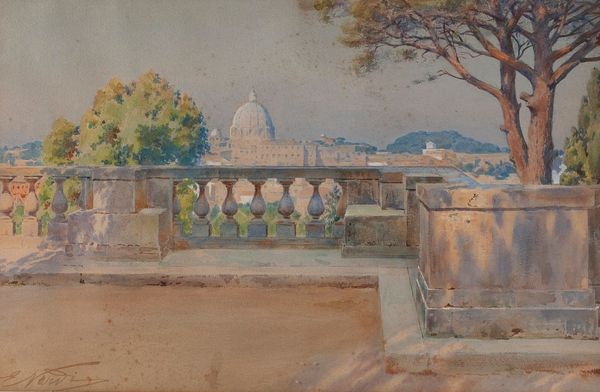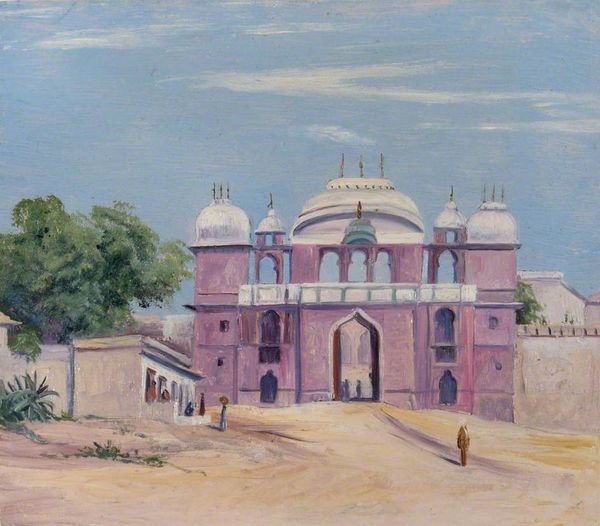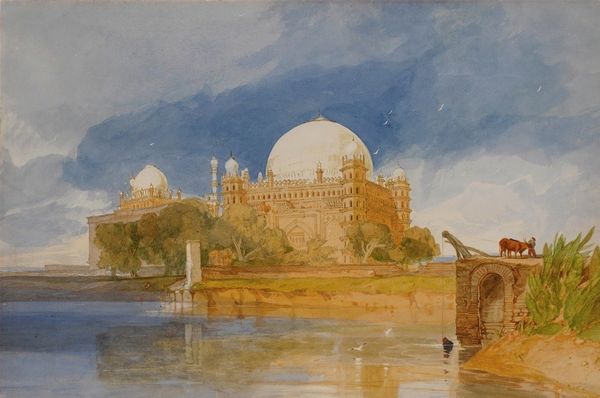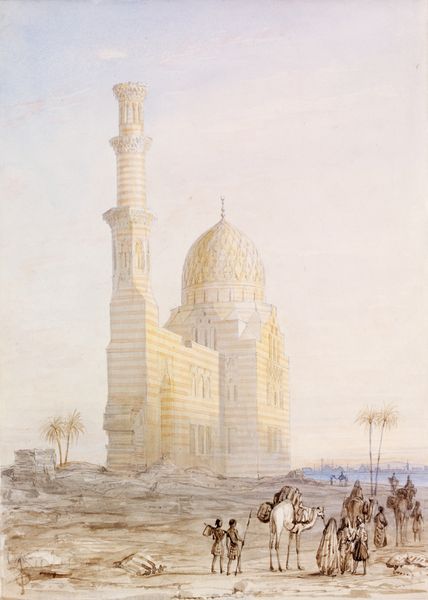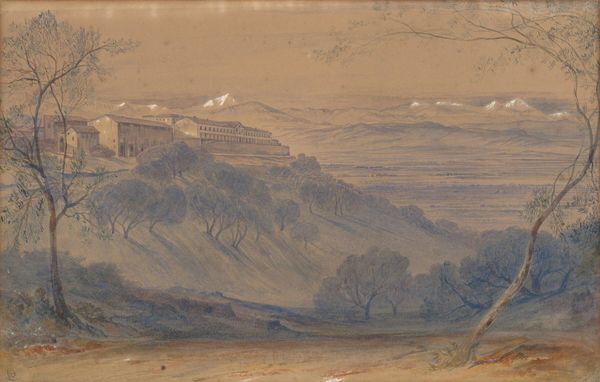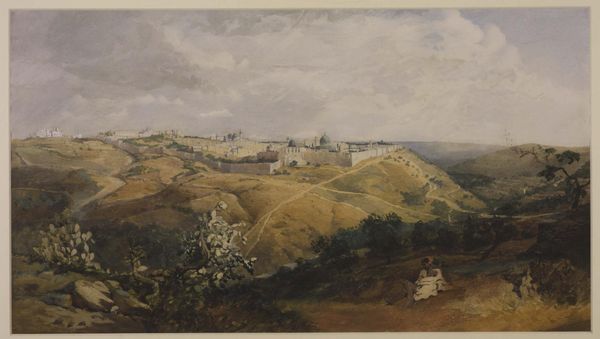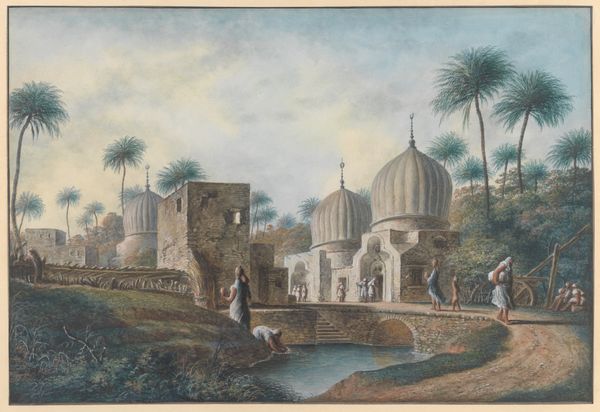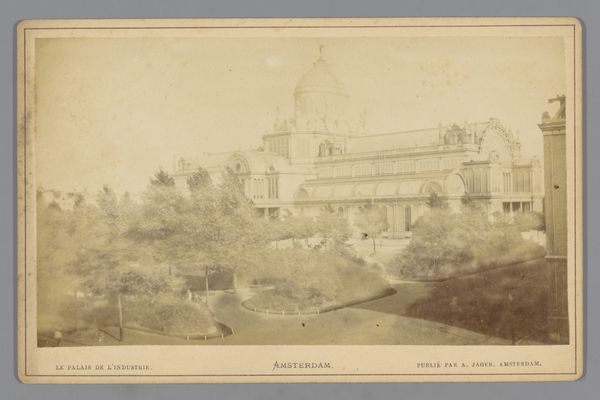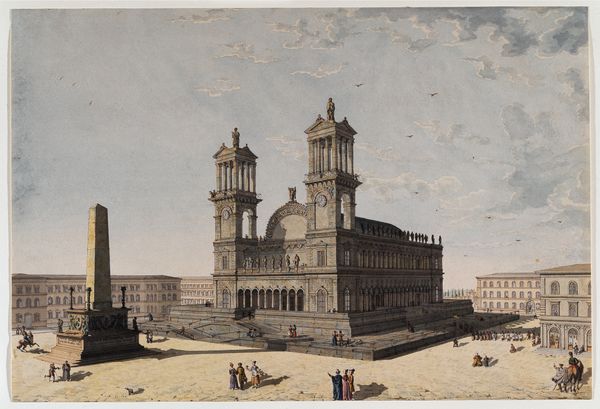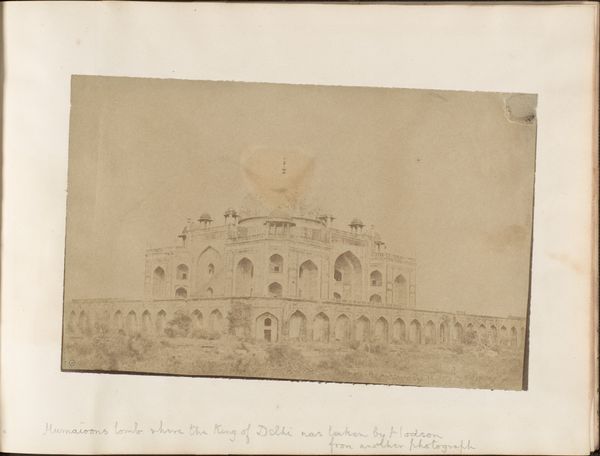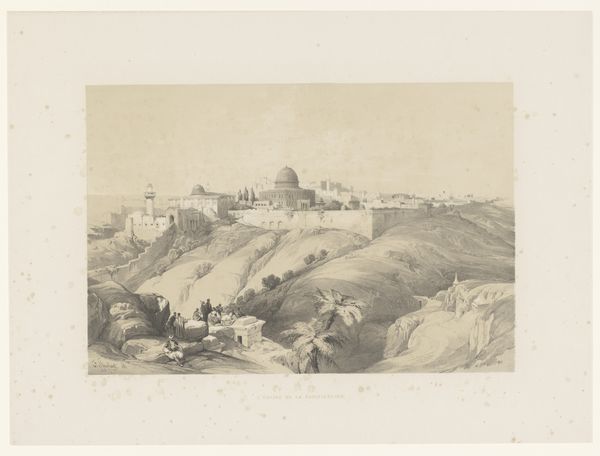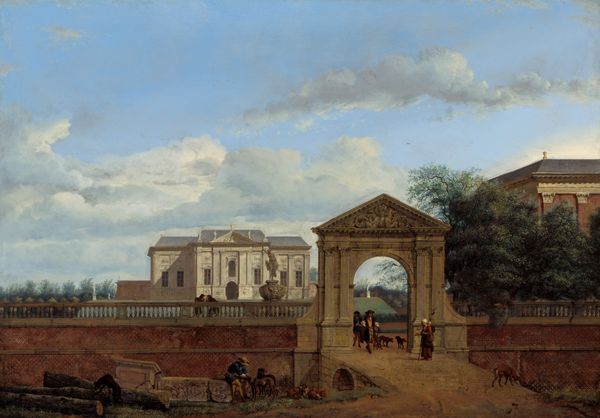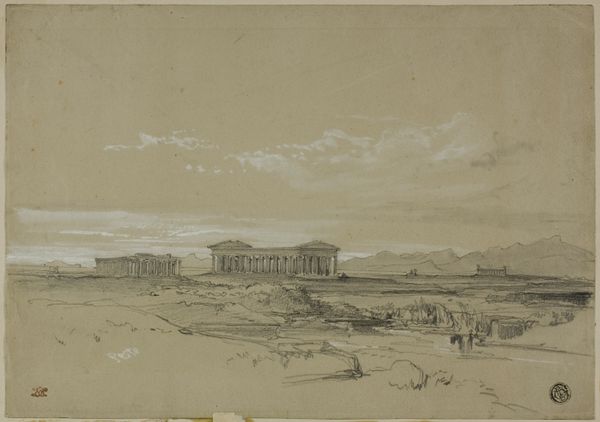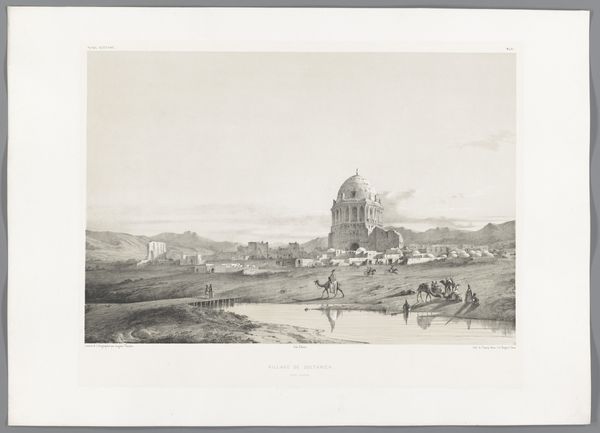
Dimensions: support: 972 x 1359 mm frame: 1110 x 1500 x 75 mm
Copyright: CC-BY-NC-ND 4.0 DEED, Photo: Tate
Editor: This is Thomas Daniell's "Sher Shah's Mausoleum, Sasaram," currently residing at Tate Britain. I'm struck by the composition—how the monument dominates the landscape. What do you see in the balance between the architecture and nature? Curator: Daniell's meticulous rendering reveals a fascination with the interplay of light and shadow, emphasizing the monument's geometric forms. Note how the dome, a perfect semi-sphere, contrasts with the organic forms of the trees. The structure almost seems to emerge from the earth itself, doesn't it? Editor: It does. It’s almost as if the artist is trying to blend it into the land itself using colors! Thanks, I see it differently now. Curator: Precisely. The very act of framing, of selecting this view, establishes a power dynamic. Consider how the monument's scale and form articulate colonial perspectives on landscape and culture.
Comments
tatebritain 10 months ago
⋮
http://www.tate.org.uk/art/artworks/daniell-sher-shahs-mausoleum-sasaram-t01403
Join the conversation
Join millions of artists and users on Artera today and experience the ultimate creative platform.
tatebritain 10 months ago
⋮
This painting shows the monumental mausoleum of Sher Shah Suri (ruler of northern India from 1540–45) in Sasaram, a city in north-eastern India. Thomas Daniell and his nephew, William, visited Sasaram in February 1790 while undertaking an extensive tour to sketch sites across northern India. Daniell made this painting after his return to England, exhibiting it at the Royal Academy in London in 1810. Such images of India were popular with British audiences, offering a kind of armchair tourism. Daniell’s art helped shape British perceptions of Indian scenery and architecture. Gallery label, August 2024
